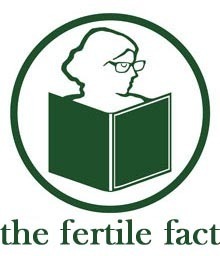Shakespeare, the Scots and the fertile art of biography
By MICHAEL CAINES
Arguments about the art of biography usually turn on questions about the past. Is biography properly a branch of historical writing, a matter of dutifully recording facts that happen to relate to a single life? Or is it more a matter of interpretation, of crafting those raw factual materials into something more like a novel? Is it ridiculous even to assume the distinction exists?
Given this tendency to think of biography as merely a matter of the past, I like the present-minded take on life-writing of The Fertile Fact, a website that both takes its name and adapts its guiding principle from Virginia Woolf's essay "The Art of Biography":
"Almost any biographer, if he respects facts, can give us much more than another fact to add to our collection. He can give us the creative fact; the fertile fact; the fact that suggests and engenders."
Run by Rhys Griffiths, the diverting "more" of The Fertile Fact is to invite "biographers/experts/super-fans" to see "famous authors and artists like fictional characters", but in relation to the present day. General, all too familiar themes emerge – anything to do with social media or scientific advances, for example – but they are "seen" from the perspective of somebody who lived without them and could only dream of life with them. There is also an idiosyncratic side of many of these portraits of the artist as a time traveller, as in Claire Harman's pen-sketch of Robert Louis Stevenson, that "notably scruffy dresser" and keen walker, in modern trainers.
Hence Strindberg's biographer Sue Prideaux likening the playwright's "celestographs" (a kind of photograph of deep space) to images from the Hubble telescope, and imagining how he would have taken to Twitter, on the evidence of his knack for an apopthegm. Also, Nicola Upson on how the crime writer she has made the protagonist in her own series of detective novels, Josephine Tey, would have taken to LoveFilm and watching the horse-racing on Channel 4; Michael Sherborne on the "futurity man" H. G. Wells and the banking crisis; and Baudelaire, as seen by Rosemary Lloyd, running up endless credit card bills and SMS-ing an urgent request for dosh. "Chère maman, please deposit more money into my account before close of trade . . ."
As these examples might suggest, playing this particular game requires a knowledgeable immersion in the world of the subject – a respect for and attention to facts, perhaps, that tend to be ignored when, for example, a biographical theory runs riot, as in the case of David Shields and Shane Salerno's compelling yet dubious Life of J. D. Salinger, and its view of the author as being, among other things, "unhealthily preoccupied with female innocence" and a war veteran whoes undiagnosed "post-traumatic stress disorder" shaped The Catcher in the Rye. It also goes missing when politicians and pundits turn to the past to find support for their views.
Reading the MEP Daniel Hannan's recent, not particularly convincing Spectator piece on Shakespeare "inventing" Britain, I noticed that Hannan wisely avoids saying "If Shakespeare were alive today, he'd be out there urging the Scots to vote in September to keep the Union" – "Patriots began appropriating Shakespeare almost as soon as he died", Hannan observes, with Ben Jonson's reference to "Britaine" triumphing over "all Scenes of Europe" thanks to the plays of Shakespeare gathered in the First Folio – but it's implicit throughout the piece that he'd like some of the supposedly union-endorsing wisdom of the great man ("the most complete human being ever to have lived" is the glass-shattering final note) to rub off on his more independent-minded readers.
It's no surprise that a few of Hannan's readers and commenters (yes, I know, only a fool reads below the line) cannot resist the temptation to ventriloquize the past in confirmation of their own views. "Shakespeare, today, would be arrested for 'Hate Crime', or killed by immigrants." (Gosh. Which bardicidal immigrants exactly?) "Can you imagine what the Victorians would be able to do if you brought them whole to this age with our technology?" (No, I can't. But that's a Queen's message I'd certainly like to see on Christmas Day.)
In the TLS diary column, J. C. has taken a more informed view of how James Boswell, Henry Cockburn, Jane Carlyle and RSL would cast their hypothetical votes: it's a tie, the facts suggest, until you take Mrs Carlyle's husband in to account. "3–2 against" would then be the result, "and that, we predict, is how it will come out in reality".
There's something like the Fertile Fact game going on, albeit not necessarily examined or understood, whenever we examine our own situation by the supposed light of some figure who isn't here to do the same – whenever somebody says asks what Jesus or Johnny Cash would do, imagines Beethoven rolling over (and telling Tchaikovsky the news) or, in some television drama, says "it's what Mum would have wanted!". So I look forward to hearing more of this sort of thing – more remonstration via Rabbie Burns, Robert the Bruce et al, well informed or not – as the great day of the referendum approaches. Well, I say "look forward" . . . which is it, forward or back?
Peter Stothard's Blog
- Peter Stothard's profile
- 30 followers




